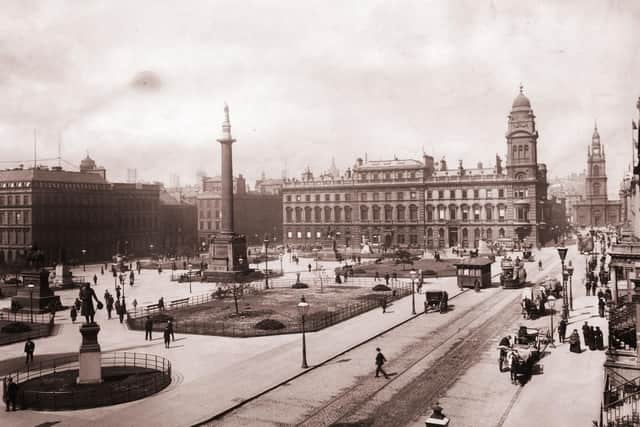Why Scotland still needs to atone for its part in slavery – Kenny MacAskill
Rebutting the suggestion that Scots were taken as slaves is important, but more so is consideration of just what Scotland’s role was in that heinous trade. For like many, if not most, I once assumed it was little.
For sure, the big houses and estates in the Highlands and elsewhere are indicative of the wealth made by a few through enforced misery, but beyond that I exculpated both myself and Scotland. Insult was added to injury, albeit sustained by others, in the vast sums paid to compensate those who practiced the trade when abolition came. But the real crimes originated in the ports of Liverpool and Bristol, with complicity in it elsewhere, or so I’d thought.
Advertisement
Hide AdAdvertisement
Hide AdOf course, there were Clyde-built “blockade runners” during the American Civil War, but that I wrote off as just shipbuilders doing what arms manufacturers everywhere did and continue to do. Duck and dive, make a buck or two, but no direct involvement. That Robert Burns was considering heading to Jamaica was just a calumny against our revered Bard. Which it is, as he didn’t go and remained admired by abolitionists like Abraham Lincoln and Frederick Douglass.


But those tales should raise questions, as they’re pointers that Scottish society and Scotland as a nation did benefit. Those who headed to the West Indies, Jamaica and Guyana weren’t just the sons and daughters of the elite. Nor was it just second sons of lords and ladies seeking their fortune there, rather than in the military or elsewhere in the Empire.
It went far lower in social class with Scots recruited to run the estates and work in skilled trades, all of which were required for the “slavery industrial complex”, with adverts seen by humble ploughboys or frustrated excise officers. The Scottish names of modern Jamaicans testify to that, and it was rarely the plantation owner that they were named after.
Similarly, I came across a Dutch footballer called Denzel Dumfries. A quick check showed his forebearers were from Surinam, the former Dutch colony adjacent to British Guyana, which was once a stronghold of Scots involvement in the slave trade. It’s not rocket science to see the link and the likely shift across imperial boundaries.
Of course, with regard to the benefits for Scotland as a whole, some of it could be described as “trickle-down economics”. Neither my own family nor indeed most in Scotland benefited directly in any way. But Scotland as a whole did benefit and, in that way, we all did.
Glasgow University academic Dr Stephen Mullen has ably shown that in his book, The Glasgow Sugar Aristocracy. The job adverts for the rank and file that nearly enticed Burns are detailed and, more importantly, the commercialisation that was allowed by the wealth generated by slavery. Banks and financial institutions in Glasgow did remarkably well from it and from that wealth spun the industrialisation that made modern Scotland, not just the houses and estates of the few.
The industrialisation of Scotland also stands in contrast to Ireland. It wasn’t just down to James Watt and geography. Finance from slavery formed a large part of it. That’s why Scotland as a whole, not just some families and institutions, needs to atone for slavery.
Kenny MacAskill is Alba Party MP for East Lothian
Comments
Want to join the conversation? Please or to comment on this article.
